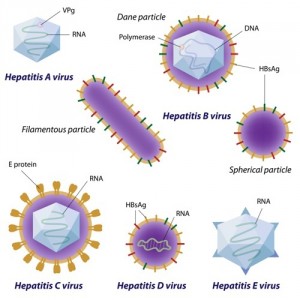 A subsidiary of Eiger BioPharmaceuticals, Inc., EB Pharma, LLC., has announced the execution of an agreement with Janssen Pharmaceutical NV, focused on the exclusive licensing of tipifarnib, a potential new therapy for the treatment of Hepatitis Delta Virus (HDV). EB Pharma had already started clinical trials on patients infected with HDV and will now start to evaluate the efficacy and tolerability of tipifarnib, as announced in a press release.
A subsidiary of Eiger BioPharmaceuticals, Inc., EB Pharma, LLC., has announced the execution of an agreement with Janssen Pharmaceutical NV, focused on the exclusive licensing of tipifarnib, a potential new therapy for the treatment of Hepatitis Delta Virus (HDV). EB Pharma had already started clinical trials on patients infected with HDV and will now start to evaluate the efficacy and tolerability of tipifarnib, as announced in a press release.
The drug is a well-characterized, late stage, orally active inhibitor of farnesyl transferase, an enzyme that contributes to protein modification via a prenylation process. This process, which happens in the liver cells, is used by the virus as a key to complete the life cycle. Tipifarnib is designed to inhibit the prenylation replication in the liver cells, resulting in a reduction in the virus’ capacity to mutiply.
Given the fact that prenylation happens as a host process inside the liver cells and is not controlled by HDV while tipifarnib inhibits prenylation, another theoretical higher barrier to resistance also happens with tipifarnib therapy. A common reason for drug resistance is virus mutation, which is fortunately not expected to happen with tipifarnib treatment.
“This novel approach to treating HDV is the culmination of decades of research,” stated the Scientific Founder and Associate Professor of Medicine, Stanford University, Jeffrey Glenn, MD, PhD. “I think it has the potential to change the treatment paradigm for the worst form of human viral hepatitis, and offers new hope for these patients.”
“HDV is the least common but has the poorest outcome of all forms of viral hepatitis,” added the President and Chief Executive Officer of Eiger, David Cory. “We are excited to license tipifarnib from Janssen and study a potential new therapy for this life threatening disease.”
Thought to be the most severe type of viral hepatitis in humans, Hepatitis Delta is caused by the hepatitis D virus (HDV) infection, which happens solely in patients who also suffer from hepatitis B (HBV). The co-infection may lead to more severe conditions of the liver, including accelerated liver fibrosis, liver cancer, and liver failure.
HDV affects currently about 15 million people in the world, but its incidence is different according to the different regions of the world. It has received Orphan Designation in the United States, Europe, and Japan. While in countries such as China, Russia, Central Asia, Turkey, Africa, and South America, its prevalence is as high as 40%.

